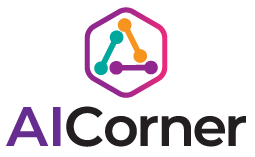Richard Terry: So, AI has emerged over the past few years to become a transformative power in healthcare, particularly within both diagnostics as well as treatment. AI is transforming how healthcare is delivered to patients, using complex algorithms built on machine learning and big data analytics that can enable the deep-learning technology of AI. In this piece, we delve into how AI is revolutionizing diagnostics and the emergence of personalized treatment plans with collaboration that looks a lot like precision medicine.
AI in Diagnostics: Enhancing Accuracy and Speed
Arguably, the most important contribution AI has made in healthcare is within diagnostics. Many traditional diagnostics involve human interpretation of complex medical data, which can be time-consuming and subject to error. On the other hand, AI-powered platforms are capable of rapidly and accurately examining huge datasets to ensure quicker and more accurate diagnoses.
Medical Imaging Analysis
AI algorithms have improved our ability to analyze medical images like X-rays, MRIs, and CT scans. At times these systems can get a hint of abnormalities, that human eyes could miss enabling early detection and diagnosis of diseases like cancer, cardiovascular conditions, or neurological disorders. Needless to say, AI-driven tools have been shown capable of detecting early-stage lung cancer from a CT scan as accurately or better than human radiologists.
Pathology and Laboratory Diagnostics
For example, AI is currently used in pathology to analyze tissue samples and blood tests at a speed that was never seen before. Pathologists Helped With the Assistance of Machine Learning Algorithms, can detect patterns and irregularities in cell-building structures. Cases in point are cancer screening, where a timely diagnosis can save lives.
Predictive Diagnostics
AI systems can examine vast amounts of patient data to spot signals and risk factors that might point toward conditions long before they become symptomatic. This proactive approach to health care will contribute to earlier intervention and prevention, therefore saving lives as well as cutting costs on overall healthcare.
Personalized Treatment Plans: Tailoring Care to the Individual
AI applications in healthcare have given rise to personalized medicine, enabling treatment plans… A substantial departure from the standard one-size-fits-all model of care;
Genomic Analysis and Targeted Therapies
For example, AI algorithms can assess an individual’s genetics and spot exactly which mutations or variations may affect how that person responds to drugs. This is especially critical in oncology, where AI can inform the selection of more effective targeted therapies based on a patient’s cancer genome.
Drug Discovery and Development
AI helps speed up drug discovery by sifting through large molecular structure databases to determine what compounds are potentially useful as a treatment against certain diseases. This has led to faster drug development and medical repurposing of drugs.
Treatment Optimization
Radiation oncologists can optimize personalized patient treatment plans by using AI to examine a wealth of data showing how similar patients have fared with comparable treatments — both in terms of efficacy and complication rates. However, this could include optimizing levels of medications, anticipating medication-based side effects or interactions between drugs, or advising particular lifestyle adjustments to optimize the response.
Continuous Monitoring and Adjustment
Wearable devices and smart sensors are powered by AI which allows for the continuous monitoring of health-related data points about the patient. They can identify small shifts in a patient’s status, and notify health providers so that potential problems are addressed before they take on more momentum. By having this data in real-time, treatment plans can be dynamically adjusted and patients are always receiving the most effective care.
Challenges and Ethical Considerations
The use cases in healthcare are limitless when it comes to AI, however, with that potential leading the way we must understand and respect the problems of deploying them:
Healthcare AI uses sensitive patient data to train algorithms, thus making Data Privacy & Security a major concern. Keeping this information private and secure is important.
AI systems are biased in the data they are trained on. However, their implementation could also perpetuate already existing healthcare disparities.
Integration with Legacy Systems: The implementation of AI solutions into healthcare makes it necessary to change existing workflows and infrastructure immensely.
Regulatory: AI in Medical Diagnosis and Treatment becomes more integrated into decision-making for diagnosis and treatment, and the management of the approval process to ensure safety/efficacy will become exponentially complex.
Trust and Acceptance: As in the case of healthcare providers, patients also need to trust AI systems so ways to instill this faith would include transparency, and education about what role the AI plays in the decision-making process requires clarity between both parties.
The Future of AI in Healthcare
With the advancement of AI technologies, we are further tipped to see more groundbreaking applications in Healthcare. These are some of the potential future improvements.
Personalized health advice and monitoring from AI-powered virtual health assistants
AI-powered prosthetics and implants that approximate native body function
Prescriptive analytics — population health management using AI to identify and solve large-scale trends in healthcare
AI-powered Nanotechnology for targeted drug delivery and microscopic surgeries.
Conclusion
artificial intelligence is reshaping the healthcare industry and this can mainly seen in diagnostics, personalized treatment planning, etc. AI taps into sophisticated algorithms and massive data repositories to allow quicker, more precise diagnostic processes as well as personalized medicine. Despite the challenges, AI in healthcare could provide substantial benefits. As we wade through the ever-evolving moral and practical consequences of this technology, it brings us staggeringines that almost begins a new era in medicine: Precision-based Personalized Preventive Medicine becoming less an addition as normal standard practice.

